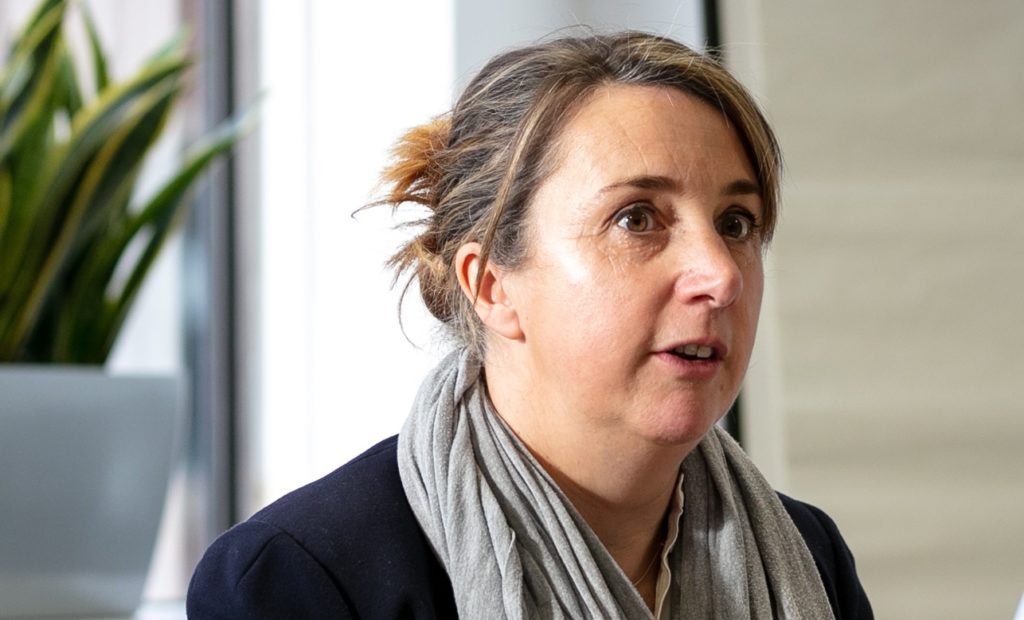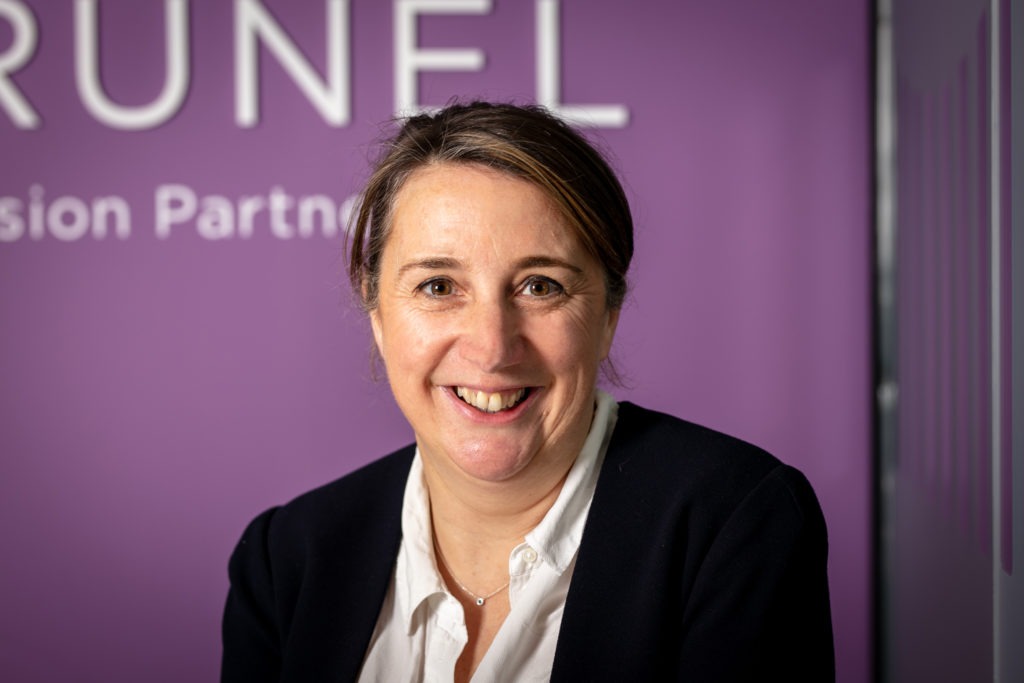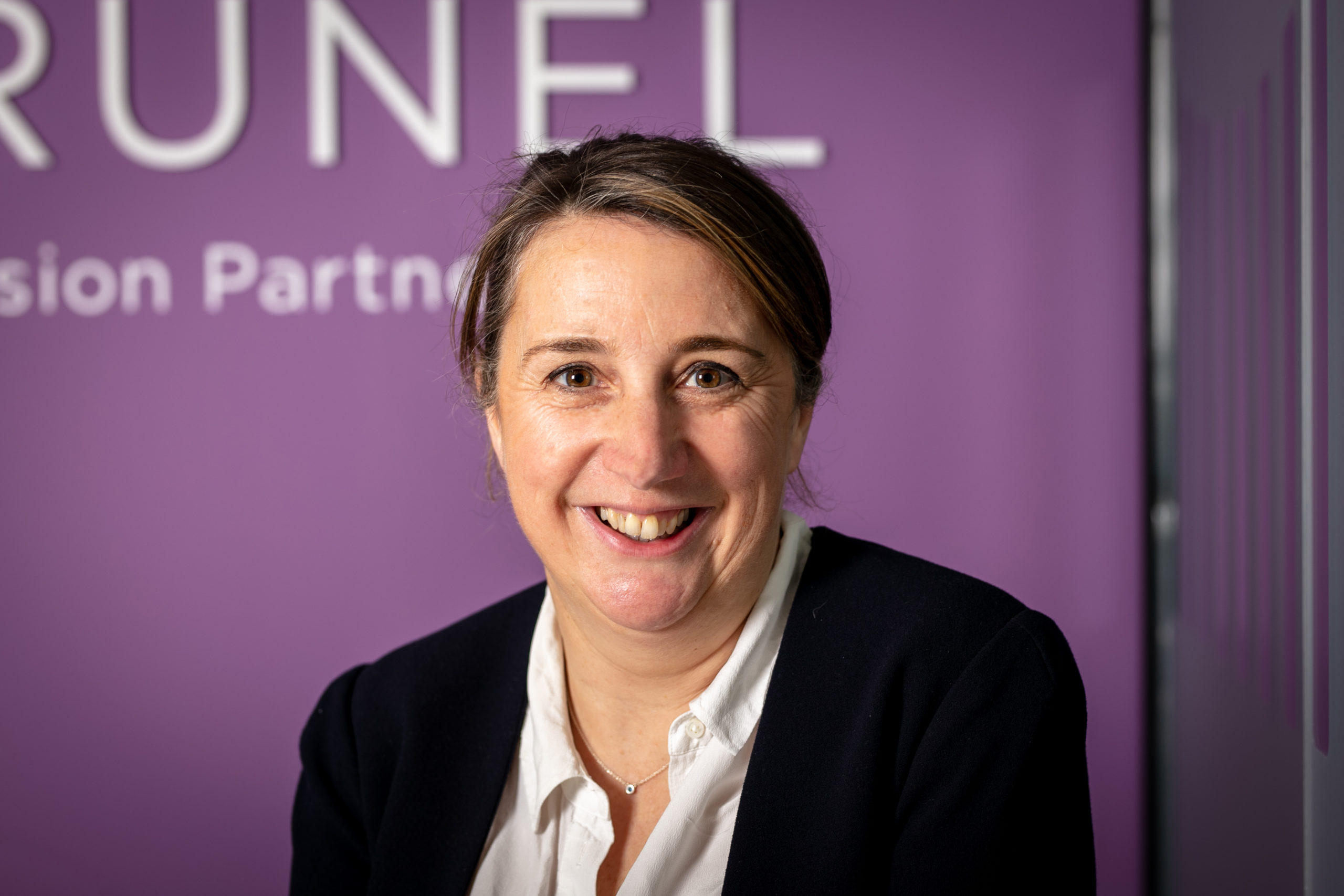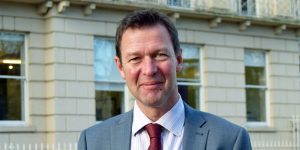
After serving in an interim capacity Laura Chappell was recently confirmed as Brunel’s new chief executive. She talks to Room151 about ESG, pushing fund managers to develop new products and leading the pool through what’s left of its transition to take full control of £30bn in assets.
Subscribe for FREE to the LGPS Quarterly Briefing
Room151: Has the role of the institutional investor changed?
Laura Chappell (LC):
I’ve been in fund management for over 20 years. When I first started out institutional investors were a bit less exciting, but I think the role has changed over the years. We absolutely still have to meet liabilities, that’s a given, that’s never going to go away; but I do think the landscape is changing.
Pension funds have also been asked to use money as a force for good. Not only by the communities in which they serve, but also their pension fund members as well. These things are not incompatible, actually. We look at it as getting value through pooling.
Room151: That was more or less the essence of what was discussed at Davos. How difficult is it for the leaders of organisations like yours to balance those interests?
LC: When you get to the heart of it, it shouldn’t be that difficult. ESG factors are financial risks and the investment management world has been managing financial risk from the word go.
If you’re investing for the long term, then you’re going to pay attention to these things, because these are the things that will make your company sustainable over time. That’s one of the reasons why we’re pushing [fund] managers so hard because, for us, it seems to be common sense.
Room151: The Japanese Government Pension fund recently decided to get out of stock lending stock. That seems to indicate they are very much about the long term too.
LC: I can absolutely understand that. We have an ongoing dialogue with our clients about this as well. We may see the landscape changing there over the next few years for everybody, which will be interesting.
ESG and asset managers
Room151: Do you think this switch to ESG and sustainability investing is a permanent fixture of institutional investment?
LC: Yes. But, as with any permanent fixture, the nature of the risk will morph and change over time. You’ve got government policies that are still developing, you’ve got new technologies coming out; we’d be crazy to think that this would stand still.
Over the last year concern around climate change risk escalated hugely, thanks to the publicity that it received. The amount of change in just one year has been exponential. We see [ESG] as an opportunity at the end of the day, as well as a risk. There will be a lot of upside here in trying to be ahead of the curve on these things.
That’s one of the reasons why we’ve got a stocktake in place for 2022, to try and ensure that we actually stay ahead of that curve, and that we understand where the future is heading because it’s moving so quickly that to be able to set a strategy for the next five years, perhaps won’t work for us.
Room151: So, how do you think about strategy?
LC: It is quite difficult to be able to say where we are looking at heading over the next five years.
What we’ll do is set our strategy up until 2022 with regards to climate change risk and then we’ll take stock and we’ll take a look at where we are and at what’s happening in the marketplace; whether we still think we’re ahead of the curve, or whether there’s a risk of dropping behind it because we want to be able to take advantage of opportunities as well as manage the downside risk of climate change.
…the industry, the pension funds, can’t really change until they get the products that they need to be able to invest in.
Laura Chappell
Room151: Is this common thinking among pension funds?
LC: This thinking is developing. I don’t think everybody’s thinking is as developed as ours. That’s one of the reasons why we’ve put our climate change policy out now. We are quite ambitious with it.
But the industry, the pension funds, can’t really change until they get the products that they need to be able to invest in. And that’s one of the reasons why we’re lobbying the asset management industry so hard on this now, to be able to get that range for them, so our clients and other pension funds can choose where they invest their money.
Room151: So your investment needs are not quite met by the supply of products at the moment and your policy thinking is a bit ahead of the asset management industry?
LC: To be fair, it [asset management] is playing catch up. All the managers that we work with are working very hard to develop what we need but it is a challenge for them; we are challenging them quite hard.
Greenwashing and disinvestment
Room151: What do you see out there among asset managers?
LC: With BlackRock jumping on board a couple of weeks ago, that was a major step forward for the industry. And we’re very supportive of that.
I think the intent is there. There’s still an awful lot of greenwashing. But as time goes on … we’re able to see indicators of people who are greenwashing versus those who are really walking the talk .
Room151: Have you got a plan for beating the green washing?
LC: That’s one of the things we’ll be doing as part of our bigger plan. We prefer to work in partnership with the managers we select. We will work with them to ensure that they’re operating in the space that we need them to. That, for us, is absolutely vital. We don’t hire a manager and expect them to do everything immediately. What they do need to have is the wherewithal and the will power to get there.
Room151: You’re providing the guidance?
LC: In some cases, yes. That said, many of the managers we pick are excellent in this space. Some will freely admit we are working with them to improve their credentials.
Room151: In a recent blog you wrote you would replace managers that cannot demonstrate a reduction in climate exposure. Are you confident of the information you need to do that?
LC: That is a good question because it is one area where the industry is still developing, and so are we. Which is why we’ve given ourselves these two years to really, really understand what the metrics are telling us, whether they’re good metrics. There’s a lot of detail there, but actually whether or not it’s going to be useful in this respect will develop over time. That’s a work in progress, from our point of view.
We’ve got carbon foot printing of our listed equities portfolios. It will allow us to set targets in the future. Our first port of call was to get the data right and make sure it was working. The second bit was to ask if we want to set targets for managers and what they might look like.

Having engaged with our portfolios—to really understand them and drill down to what’s in them and why we’re holding certain things—what we’ve realised is there are some companies that get all of their revenue from oil and gas, and there are some that are diversifying rapidly and have a really great strategic plan. For us, they may be a better bet in the longer term than sticking with a pure coal or gas company.
We want to be supportive of those behaviours, so to speak. Because, on a long-term strategic basis, those are the companies that are probably going to do better over the next ten to fifteen years.
Room151: Is it a black and white question judging whether a company is heading in the right direction?
LC: That is going to be an interesting debate over the next couple of years because at what point are we going to think about disinvesting? And why would that be, for what reasons? We’re developing that thinking at the moment.
Public profile and transition
Room151: Do you expect Brunel to be take a higher public profile in the near future?
LC: Well, I think we’ve been fairly confident about going public with our views and we will remain so over time. I can’t see that changing. I think as time goes on, perhaps our voice will become one of many, instead of one standing alone.
Room151: Is the new Stewardship Code placing pressure on you to focus on the outcomes from you engagement?
LC: For us, we’ve always looked at outcomes. One of the ways the partnership was set up, is that we reflect as much on outcomes as we do on performance. And the two are not incompatible.
Is it going to present a challenge to us? No, I think it’s a real positive. We’ve been really lucky with our 10 clients that they are very outcome focused, and very aware of these things already. And we’ll continue to build on that over time.
Room151: Brunel is about 50% through its transition. Is it a settled organisation now?
LC: We are starting to settle. We’re in the middle of a massive, massive transition, and things aren’t necessarily settled yet. Give it another year, we will be able to say: “We’re there.”
On the positive side, our clients are working really well together. Consensus is getting easier and easier to obtain as they work together collaboratively.
To some extent, we have completed the easier stuff. So, those portfolios where we’ve got consensus already, we’ve got a very firm direction to head in, that work has been done.
One of the other big risks for me is reputational risk. If one pool fails then we’re all going to be tarred with the same brush.
Laura Chappell
What we’re now moving onto is some of the trickier stuff where, perhaps, needs have changed over the period because we formulated these [plans] three years ago before the launch of Brunel. Which did get us some great wins at the time, because at least we knew what direction we were heading in.
But now we’ve got to go back and revisit some things, like our fixed income strategy. We’re just looking at that now. We’re just picking up our multi-asset credit fund, our MAC, and talking about sustainability versus risk and return with clients—we’ve led discussions around that.
To me, this is the really meaty, interesting stuff. We’ve done the equities, the normal standard stuff you would expect. We’re on to the things that require a bit of discussion with our clients—product development work.
Room151: What are the challenges in the rest of transition?
LC: One big risk for me is government policy. Like many funds, our clients are moving towards improved funding levels after their triennial valuations. So, government mandated pooling: Where’s [the government] going to take it next?
There’s still a discussion about the active-passive debate going on, that’s still rumbling around in the background.
One of the other big risks for me is reputational risk. If one pool fails then we’re all going to be tarred with the same brush. I don’t want that because, actually, Brunel is proof that pooling is working, and we’re very positive about that.
The other big issue is that on ESG, our ability to move quickly is constrained by what’s on offer in the market. We realise its dynamic and we are going to be constantly challenging our managers to innovate because we want to choose those portfolios that enable the transition to a low carbon world.
We have all of that going on in the background. And then, like other pools, our governance with our shareholders, our clients, is still bedding in. Many of the challenges will work themselves out over time as people get used to working together.
Room151: Which external factors worry you most?
LC: It’s market conditions to be honest. We’ve had a great run over the past few years, markets have been good. At some point we are due a correction. If that happens in the middle of a transition, we are dealing with a large amount of money here. This is one of the things that keeps me awake at night.
Skills and the future
Room151: You were interim chief executive, you’re now permanent. What are the key objectives for your leadership?
LC: For me, the joy in doing this job is having an excellent team around me, working well and sparking off each other; to challenge each other to innovate and to do better and to do more. We have that internally, but also in the wider partnership with our clients.
That’s part of what drives me to do the job. It’s that great feeling of working together, producing something that is really great quality.
The future is all about adding value through pooling for the clients that we’ve got.
Laura Chappel
My key objective over the next couple of years is building on the trust and the track record we’ve got with clients. For me trust is vital when you’re working in a partnership with ten clients.
Room151: What is your key skill?
LC: I understand the numbers. I’ve worked in fund management for my whole career. But I’m not a portfolio manager and I have no desire to be. We’ve got a great team of people who do that.
A lot of the skill I bring is around relationship management and consensus building and having people work collaboratively together to reach their goals.
Room151: What does the future hold for Brunel?
LC: The future is all about adding value through pooling for the clients that we’ve got. That is the most important thing: delivering on our promises, and a little bit more, so that they can feel really good about being in a partnership that works.
My focus for the next 18 months is getting us through the transition and then, into the future, it is about how you plot out the trajectory for the next five years, when there is a lot of moving parts.
The government could decide that they’re going to change things; there might be pools moving; there might be clients moving around—any of that stuff could happen in the future and my goal is to be nimble enough as a firm to be able to react to whatever happens and take advantage of any opportunities that come up.
Room151: What’s the one lesson from your interim role you bring to the rest of your time leading Brunel?
LC: I always thought I was a reasonable multi-tasker and now I know I’m a really good multi-tasker. There is so much going on all the time. We’ve got ten clients (ten shareholders), oversight board members, I’ve got my board, we’ve got the external managers, we’ve got the internal firm. And we’re only a firm of 45 people, though we feel much bigger because of everything that we’re working on.











